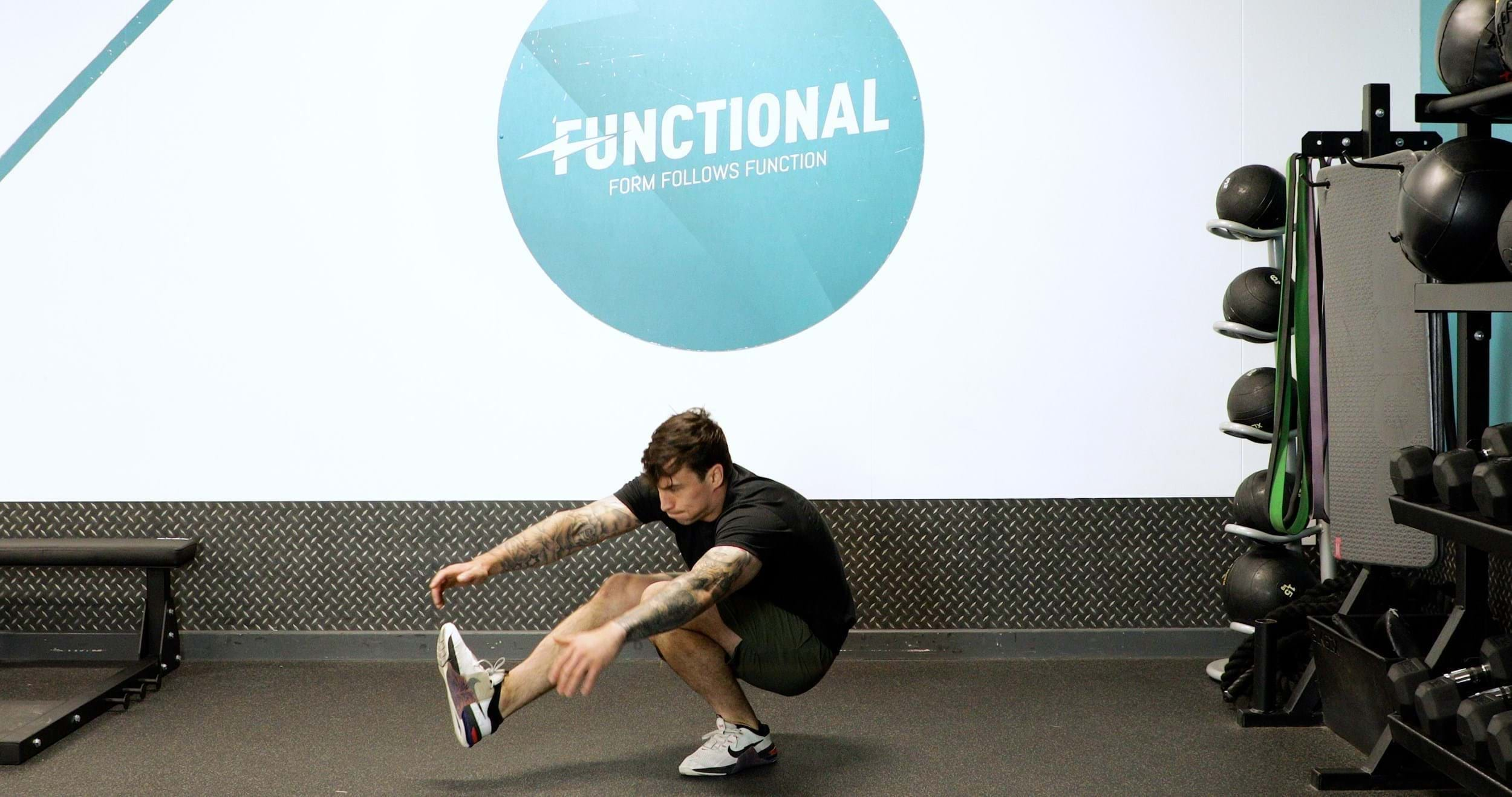Pistol Squats
What Are Pistol Squats?

The pistol squat is an advanced movement that requires high levels of mobility, balance, coordination, and single leg strength. Showcasing a one-legged squat, the pistol uses bodyweight to challenge the glutes, hamstrings, quads, and calves, as well as recruiting the core for balance and stability.
While most squat movements follow a similar pattern, the pistol squat is a little different. It requires much greater depth and more involvement from the arms and upper body. It will likely take some practice to achieve a pistol squat, and most people will need to work on both strength and mobility to achieve this.
Check out some other squat variations: squat jumps, broad jumps, bodyweight squats, barbell back squats, front squats
Commonly Asked Questions On Pistol Squats
Pistol squats are a challenging movement that target the legs unilaterally and are great for building single leg strength. They involve a greater range of motion than most squat variations, so can help to improve mobility, and they work the hip flexors, a muscle which is often weak as a result of a sedentary lifestyle and typically missed out in training.
Pistol squats demand a significant amount of strength, mobility, and stability, which is what makes them so challenging. Some people may have the strength but lack mobility, some may lack the strength, some may lack all three components.
If you’re looking to master the pistol squat start with single leg squats before progressing to assisted versions like TRX pistol squats or box pistol squats, which can help build the strength and mobility needed.
The pistol squat is very challenging and can definitely be considered one of the most advanced variations, however the squat you find the hardest is subjective and some people may find it easier than other variations.
Pistol Squat Tips
You will need a significant level of hip and ankle mobility, and glute and quad strength to complete a pistol squat. If you are struggling with strength, train unilateral movements like reverse lunges and step ups, or use a box or bench to perform pistol squats on and gradually lower the height of the object.
If mobility is holding you back, add hip and ankle stretches into your training to improve mobility. Holding deep squats can be a great way to improve both of these areas.
How To Do Pistol Squats
Take a shoulder width stance with toes pointed straight forward. Brace your core.
Lift your non-working leg so it is parallel with the floor, or as high as possible if not, and straight.
Push your hips back and bend at the knee of your working leg. As you lower down, you’ll need to reach your arms forward to act as a counter balance. Make sure to keep your other leg straight and off the ground
Squat down until your thigh is almost touching the calf and your non-working leg is close to the ground.
Return to standing by pushing through your foot, making sure to push through the whole foot and not just the heel. As you stand, keep your non-working leg off the floor, and your arms extended forward.
Stand tall while maintaining a soft bend in the knee.
If you’re not sure if any of the above exercises are suitable for you, please consult your doctor before you start it. Need guidance on how to perform the exercise? Ask a personal trainer at your gym.